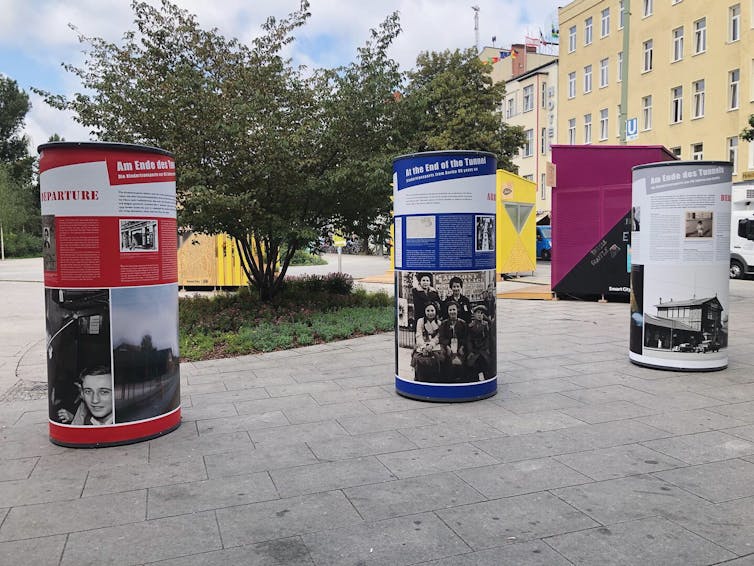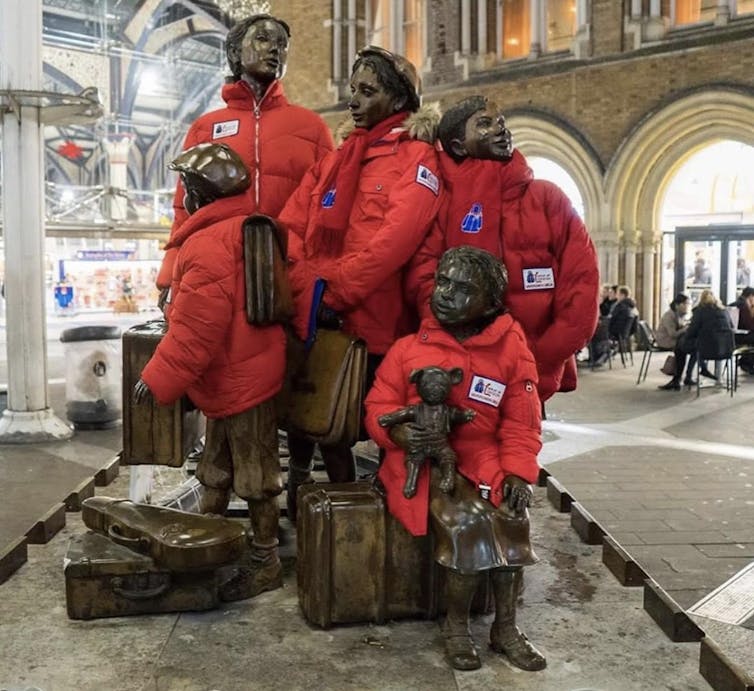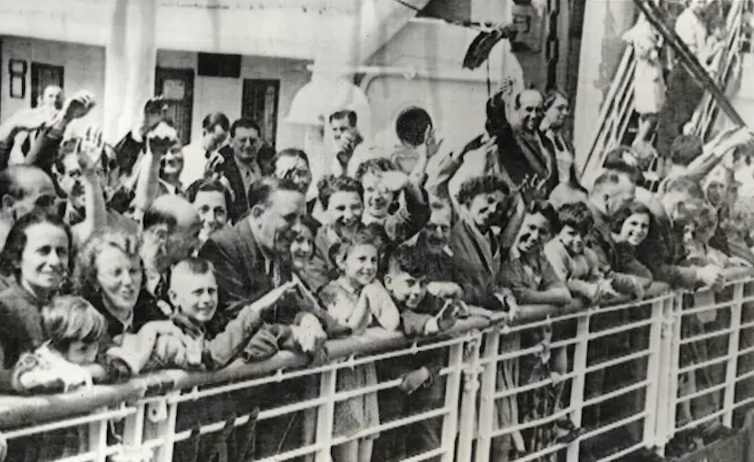Britain remembers the Kindertransport but is in danger of forgetting its lessons
Amy Williams, Nottingham Trent University and WIlliam Niven, Nottingham Trent University
Reports in the UK press on September 1 revealed plans by the home secretary, Priti Patel, to end the current migration system which reunites refugee children with their families living in Britain in the event of a no-deal Brexit. If legal routes to family reunion close, thousands of children will be at risk. After surviving dangerous journeys, these children, who have already suffered greatly, will be extremely vulnerable to traffickers and exploitation.
This at a time when Britain has been commemorating the 80th anniversary of the Kindertransport, which saved around 10,000 mainly Jewish children from Nazi persecution. It’s ironic that a nation which prides itself on welcoming refugee children in the past – not just Jewish children, but also Basque, Gibraltarian and Maltese children – is now turning its back on those in real danger today.
The story of the Kindertransport has become central to Britain’s memory of the way the country confronted Nazism. But the Home Office’s recent decision shows that the 80th-anniversary commemorations have had little effect on government policy and attitudes towards refugees today.
Sadly, this is not the first time Britain has let refugee children down. When Lord Alf Dubs, who himself came on a Kindertransport from Prague, tabled an amendment to the 2016 Immigration Bill, aiming to help 3,000 refugee children gain entry to the UK, former prime minister Teresa May’s government capped the number at 480. Three years later, only 250 children have come to Britain and many of the places are yet to be filled.

So why are memories of the Kindertransport not leading the UK to act more compassionately towards refugees today? Many historians agree that Britain’s national memory of the Kindertransport is self-congratulatory – while more negative aspects are marginalised. Some Kinder faced abuse and exploitation by foster parents and bullying by British schoolchildren. In 1940, some of the Kinder were interned in Britain as “enemy aliens”. As the British internment camps became too full, Kinder faced further dislocation and distress when they were sent on to internment camps in Canada and Australia.
But grassroots schemes and charities, such as World Jewish Relief and Hands On London, have shown how the memory of the Kindertransport can provide motivation to help all those in need.
Their activities have included an inventive use of Frank Meisler’s Kindertransport memorial in London. In 2018, the memorial was draped in red winter coats, a reaction to domestic issues such as homelessness, but also to the international refugee crisis. Recently, too, there have been tentative steps towards a more critical perspective in Britain. Examples include the exhibition Leave To Land: The Kitchener Camp Rescue, 1939, which addresses issues such as internment.

That a critical national memory can be more effective when it comes to helping today’s refugees is demonstrated by the case of Germany. When Angela Merkel opened Germany’s borders to refugees stranded in Hungary in September 2018, this was widely seen as an example of Germany applying lessons from its Nazi past. The destructive culture of Nazism had been replaced by a culture of welcome.
That welcome has perhaps become less enthusiastic, with rising levels of racism being linked to the influx of refugees. But Germany, in recent years, has still taken in far more refugees than Britain – and has a much more dynamic memory culture.
Canada, too, has a more productive self-critical memory. In November 2018, the prime minister, Justin Trudeau, apologised for Canada’s decision in 1939 to turn back the MS St Louis, a ship filled with Jewish refugees from Europe. In 2018, Canada resettled more refugees than any other country.

The St Louis also tried to disembark refugee passengers in the US and the American media have been full of regretful articles, too – but it is Donald Trump’s hostility towards refugees which determines US government policy. Not everyone accepts the comparison between, for example, today’s Syrian refugees and Jewish refugees from Nazism.
Some people dislike this comparison because of concerns at levels of antisemitism among incoming Muslim refugees – while Islamophobia in the West also blocks empathy. Meanwhile, a wholly positive image of helping refugees in the past is not helpful either. Britain needs to keep the broader and traumatic history of the Kindertransport in mind.
Instead of just looking inwards, we also need to look outwards and take heed of the difficult journeys across borders faced by refugees today. When the current British prime minister, Boris Johnson, warned refugees about crossing the Channel, he seemed just as concerned with keeping them out of Britain as with their safety. This does not send a welcoming message.
Amy Williams, PhD researcher in Humanities, Nottingham Trent University and WIlliam Niven, Professor in Contemporary German History, Nottingham Trent University
This article is republished from The Conversation under a Creative Commons license.
Comments
Post a Comment